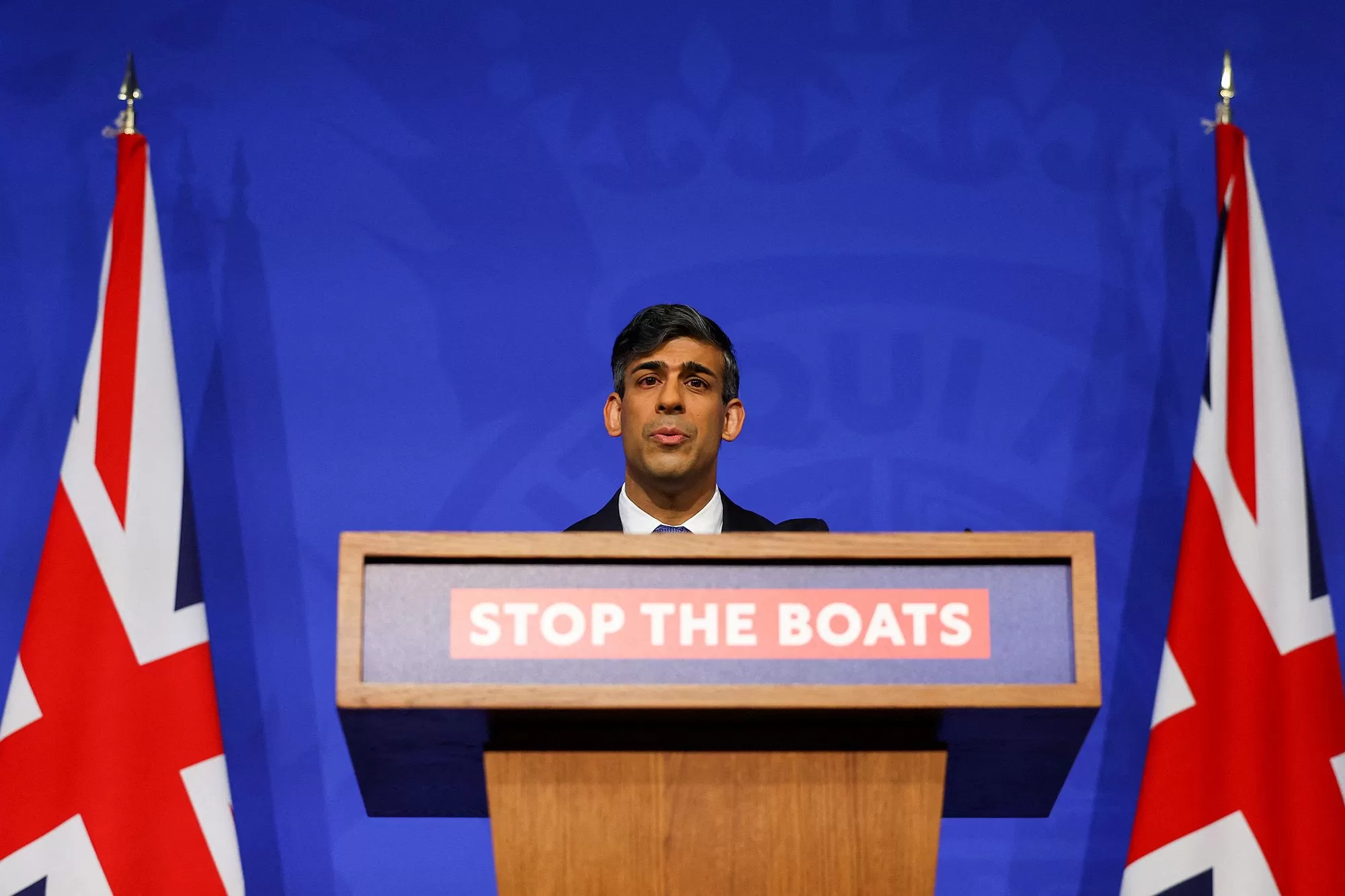On May 22, 2024, British Prime Minister Rishi Sunak made a surprising announcement: the United Kingdom will hold a snap general election on July 4, 2024. This decision, occurring well before the mandated general election deadline of January 2025, has sparked widespread debate and analysis regarding Sunak’s motivations and the potential ramifications for the UK political landscape.
The Announcement
Standing outside the iconic black door of 10 Downing Street, Sunak declared that the British people needed to make a decisive choice about their future direction. He emphasized that recent achievements and ongoing initiatives required a renewed mandate from the electorate to ensure their continuation and success. By calling for an early election, Sunak has set the stage for a highly charged political battle in the heart of summer, a time when political campaigns are typically not expected.
Motivations Behind the Snap Election
Several key factors have influenced Sunak’s decision to call an early election:
1. Economic Performance: Sunak’s government has overseen recent positive economic indicators, including a reduction in inflation and signs of recovery from the prolonged cost-of-living crisis. By leveraging these economic improvements, Sunak aims to bolster the Conservative Party’s image as competent stewards of the economy, hoping to translate this perception into electoral gains.
2. Disrupting Labour’s Momentum: Labour, under the leadership of Keir Starmer, currently enjoys a significant lead in the polls. By calling a snap election, Sunak intends to disrupt Labour’s strategic preparations and force them into a rapid campaign mode. This move seeks to exploit any potential weaknesses in Labour’s readiness for an unexpected election.
3. Internal Party Dynamics: The Conservative Party has been experiencing internal divisions and challenges to Sunak’s leadership. An early election provides an opportunity for Sunak to consolidate his leadership by unifying the party around a common electoral goal and marginalizing dissenting voices within the ranks.
4. Highlighting Policy Achievements: Sunak’s government has achieved several notable policy successes, including increased defense spending and improvements in public services. By calling an election now, Sunak aims to bring these achievements to the forefront of the campaign, contrasting them with Labour’s policy proposals.
Polls and Public Opinion
The decision to call a snap election is undoubtedly risky, particularly given the current state of public opinion. Recent polls indicate that the Labour Party holds a substantial lead over the Conservatives, with some surveys showing a gap as wide as 20 percentage points. This significant lead suggests that the electorate is largely dissatisfied with the Conservative government’s performance on key issues such as healthcare, immigration, and environmental policies.
Analysts predict that if these trends persist, Labour could secure a landslide victory, reminiscent of the 1997 general election when Tony Blair’s Labour Party swept to power. The challenge for Sunak and the Conservatives will be to narrow this gap during the brief campaign period, utilizing their strategic advantages and recent policy successes to sway undecided voters.
Potential Consequences
The outcome of the July 4 election could have far-reaching consequences for the UK’s political future:
1. Conservative Victory: Should the Conservatives manage to overturn Labour’s lead and secure a victory, it would solidify Sunak’s leadership and provide a mandate for his government’s policies. This outcome would likely hinge on the Conservatives’ ability to effectively communicate their economic and policy achievements to the electorate.
2. Labour Landslide: If Labour maintains its lead and wins decisively, Keir Starmer could become the next Prime Minister, bringing significant policy shifts. Labour’s platform focuses on addressing economic inequality, reforming public services, and implementing progressive environmental measures.
3. Coalition Government: In a scenario where no party achieves an outright majority, a coalition government could emerge. This outcome would necessitate complex negotiations and could lead to a more unstable political environment, with potential implications for the UK’s governance and policy directions.
Broader Implications
Sunak’s decision to call a snap election underscores the volatile and dynamic nature of contemporary British politics. It reflects broader global challenges faced by governments in navigating economic recovery, public health, and social cohesion in a post-pandemic world. The election’s outcome will not only shape the immediate future of the UK but also provide insights into the evolving political trends and voter priorities in one of the world’s most influential democracies.
As the UK heads into this unexpected election season, both domestic and international observers will be closely watching to see how the campaign unfolds and what it reveals about the state of British politics and its future direction.
Source link
